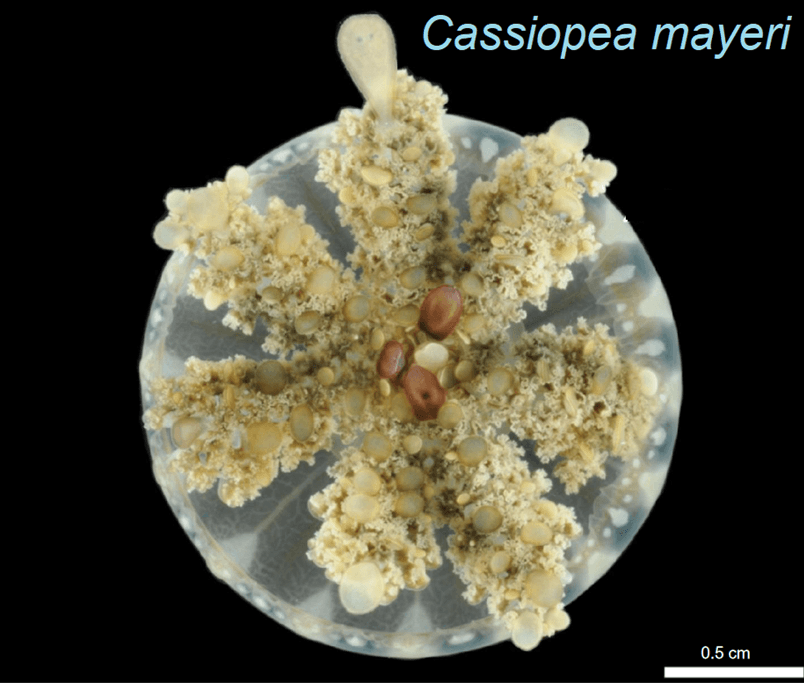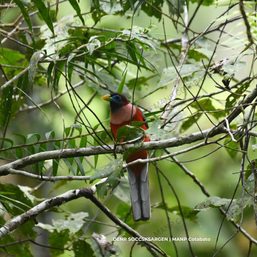SUMMARY
This is AI generated summarization, which may have errors. For context, always refer to the full article.

An international team of scientists joined by two Filipino marine biologists have discovered a new species of jellyfish in the Philippines.
The discovery of the team of led by Dr. Edgar Gamero-Mora of the University of Sao Paulo in Brazil was recently published in the journal Invertebrate Systematics.
The jellyfish is found in northern Luzon, Cebu, and Palawan.
“The scientific name of the new species is Cassiopea mayeri and a species that was revived from its classification is called Cassiopea culionensis, which honors Culion Bay, Palawan, where it was originally found,” Filipino marine biologist Sheldon Rey Boco of the Philippine Jellyfish Stings Project shared with Rappler.
Boco, who is affiliated with the Griffith University in Australia, and fellow Filipino marine biologist Serafin Geson III of the University of San Carlos in Cebu are part of the team that made the discovery.


“The scientists combined molecular, anatomical descriptions and the features of the stinging cells called cnidome of the jellyfish to reveal the identity of these marine animals that are still new to science,” Boco said.
He said the new species “belong to a group of jellyfish that carry mild venom and can release mucus with stinging cells that carry venom, into the water which induces the characteristic itchy water that beach bathers and fishers describe when this jellyfish is around.”
Boco posted a video of the jellyfish on Twitter on Thursday, February 3.
Significance of discovery
Boco said the discovery “shows the importance of identifying and recording the identity, biology and distribution of organisms in the midst of biodiversity crisis, characterized by significant loss of planetary life.”
“Cassiopea is a jellyfish genus and they are stingers. As living beings, they have implications in the cycle of nutrients and energy and their relationships to other organisms (as prey, predator or symbiotic interactor) in marine ecosystems,” he explained.

He added: “The jellyfish have implications on tourism, coastal recreation and fisheries since they are stingers (but can be mild) that can affect how humans behave towards marine environment like when catching fish or other seafood in the presence of the jellyfish.”
Asked about the significance of the discovery, also in relation to the Philippines, Boco said: “The discovery also implies the large diversity of jellyfish in Indo-Pacific and the Philippines, which is considered the epicenter of marine biodiversity, exhibiting the highest species richness of marine life. The new species and other marine life in the Philippines form the natural heritage of our country.”
Boco said the collaboration of Filipino scientists in the study also “indicates the ability of Filipinos to get involved in cutting edge or international science and our strong contribution to taxonomy and marine/ ocean science.”
The other members of the team are Dr. Allen Collins, a research scientist and systematist who specializes in jellyfish systematics and biology at the National Systematics Laboratory of the National Oceanic and Atmospheric Administration and National Museum of Natural History, Smithsonian Institution in the US; and Dr. Andre Morandini, a jellyfish systematist and marine biologist at the Laboratorio de Cultivo e Estudos de Cnidaria at the University of Sao Paulo in Brazil. – Rappler.com
Add a comment
How does this make you feel?





There are no comments yet. Add your comment to start the conversation.